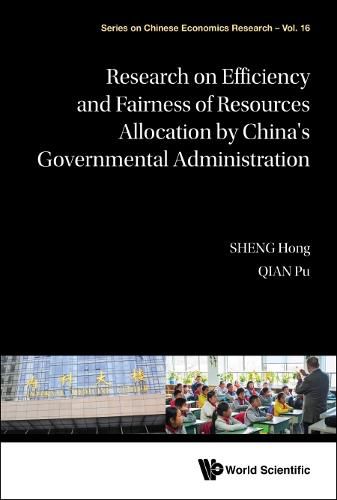Readings Newsletter
Become a Readings Member to make your shopping experience even easier.
Sign in or sign up for free!
You’re not far away from qualifying for FREE standard shipping within Australia
You’ve qualified for FREE standard shipping within Australia
The cart is loading…






In China, the government controls a large part of resources, such as land, energy, bank savings, and so on. This book studies the efficiency and fairness of resources allocation by governmental administration in China. The book states that it is neither fair nor efficient to allocate resources by the governmental administrations. These resources should be allocated by the market.The book analyzes the resources allocation by government administration in three key areas namely education, health care, and land. A quantitive analysis is developed for describing more precisely the situation of unfairness in fiscal resources allocation. This book also describes how ordinary people address the misposition of resources by governmental administrations by migrating from the provinces with less resources to the provinces with more resources in education or health care. Thus, the book concludes that the actual allocation of resources is determined by the interactions between ordinary people and the government.
$9.00 standard shipping within Australia
FREE standard shipping within Australia for orders over $100.00
Express & International shipping calculated at checkout
In China, the government controls a large part of resources, such as land, energy, bank savings, and so on. This book studies the efficiency and fairness of resources allocation by governmental administration in China. The book states that it is neither fair nor efficient to allocate resources by the governmental administrations. These resources should be allocated by the market.The book analyzes the resources allocation by government administration in three key areas namely education, health care, and land. A quantitive analysis is developed for describing more precisely the situation of unfairness in fiscal resources allocation. This book also describes how ordinary people address the misposition of resources by governmental administrations by migrating from the provinces with less resources to the provinces with more resources in education or health care. Thus, the book concludes that the actual allocation of resources is determined by the interactions between ordinary people and the government.